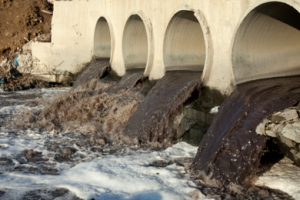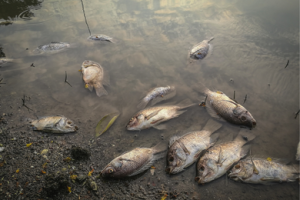Sustainable Development Goal 6 reads: “Ensure access to water and sanitation for all.” This SDG opens our eyes on what is the reality in many parts of the world that completely lack access to clean water. It is true that the western world may suffer from low water quality, but this rarely concerns water for washing and drinking, and it is more related to the quality of water bodies affected by pollution and anthropogenic runoff.

However, what this SDG really tells us, is the truth behind the life of many people lacking basic sanitation, with common practices of open defecation and 4.2 billion humans still facing daily challenges accessing even the most basic of services. Water is necessary for life to function. Aside from needing to drink water to survive, water is extremely important for sanitation. As it is in the word, “sanitizing” is the oldest and most basic health protection. We will now dive a little deeper into the targets outlining how important clean water is for many aspects of health.
Importance of water quality to planetary health:
SDG 6.2 goal recites: “By 2030, achieve access to adequate and equitable sanitation and hygiene for all and end open defecation, paying special attention to the needs of women and girls and those in vulnerable situations”. This really implies the importance of achieving sanitation and hygiene. Without access to clean water, you cannot wash your hands, hence you cannot protect yourself from contracting infectious diseases effectively. Moreover, water-borne diseases such as many diarrheal conditions and cholera, for example, cannot be prevented without clean water, putting millions of lives still at risk today.
Clean water does not only concern the realm of human health though. As SDG 6.3 recites “By 2030, improve water quality by reducing pollution, eliminating dumping and minimizing release of hazardous chemicals and materials, halving the proportion of untreated wastewater and substantially increasing recycling and safe reuse globally”, pollution and hazardous materials are keys to resolve water quality issues around the world.

Artificial pollutants deriving from anthropogenic runoff are responsible for a variety of wildlife diseases, as well as human and animal cancer from the presence of carcinogenic contaminants in water environments. Untreated wastewater can also be a contributor to the formation of harmful algal blooms, such as red tides, causing large-scale mortality events. SDG 6 also mentions the role of this goal to serve as a mitigation strategy for the climate crisis, which already is, and will be significantly impacting water access facilities around the world.
Setting the progress
When the UN says “ensure sanitation to all”, this “all” should really be seen from a One Health perspective. All means humans around the world, animals, plants, and the environment. As mentioned above water is a necessity for life and it really is a necessity for all life forms inhabiting the planet.
By: Costanza Manes | Research Fellow
 0
0
